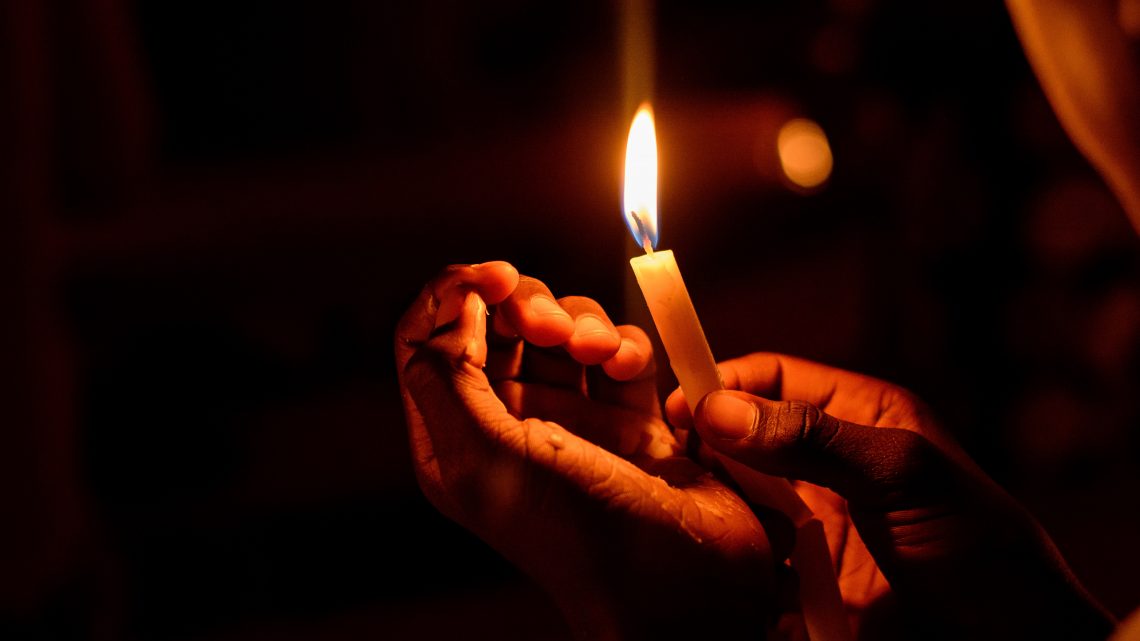Darkness and Light
25 March 2023I am delighted to be introducing the first edition of The Flying Goose edited by Chris Maddison and Piero Stallo. We’re so grateful to Stephen Drew for his sterling work over nearly 10 years producing this magazine. He has made it happen professionally, reliably and with unending good humour, and weknow what a valued community resource it is. So I’m really pleased that Chris and Piero have taken over and am grateful for their energy moving forwards.
As I prepared this piece, I looked back to what I had written for last year’s Easter edition. Russia had just invaded Ukraine. The news was terrible and I noted the disconnect of springtime in Oxford and the horrors of the world around us.
I am writing on another beautiful spring day, and the news remains awful. The situation in Ukraine shows no signs of abating. As global food prices increase, we know that people are struggling – here in Wolvercote, as well as those who are taking desperate measures to survive extreme hunger in East Africa. And of course, the recent earthquakes in Syria and Turkey have created a disaster of a scale that is almost unthinkable.
There is much tragedy in the world – and for many of us it won’t be far away. I certainly don’t want to downplay this reality. But it’s easy to become overwhelmed, and to give in to the sense that there is nothing we can do in the face of such entrenched problems around us and in the news.
In his book, Immortal Diamond, spiritual writer Richard Rohr talks about how philosophers have spent centuries trying to solve the problem of evil, but notes the twin issue of the problem of good. ‘How do we account for so much gratuitous and sheer goodness in the world?’, he asks. ‘Tackling this problem would achieve much better results.’ As I write, we are about to begin the season of Lent, the time in the church year when we remember Jesus’ forty days in the wilderness, and will move towards his final days, his suffering and his death – and finally to Easter and the resurrection.
In the end, this is a story of astonishing good news – one that tells us that cruelty, violence and tragedy somehow do not have the last word. But it’s not easy hope. Noticing resurrection may be as hard as living Good Friday. It takes courage and faith to recognise where resurrection is taking place – where there is beauty and life and possibility, even in and through what seems to be crucifying.
There is much darkness in the world – and few of us need convincing otherwise. But just as the darkness is real, so is the light. During my 18 months in Wolvercote and Wytham, I have witnessed so much goodness and kindness – from those who create community events to bring people together, to those who have opened their homes to those fleeing Ukraine; from those who organise litter picks, to those who shop for neighbours; from those who run the Monday lunch club to those who volunteer at the Young People’s Club; from those
who offer time at the Ukraine Friendship Centres at St Peter’s and the White Hart, to those who have created the warm space, also at the White Hart.
The list goes on and on and on. The prophet Isaiah wrote 700 years before the birth of Jesus that ‘Darkness covered the face of the earth, and thick darkness the peoples’. Yet, in words often read at Christmas, he points not to the darkness but to what would emerge from it. ‘Arise, shine, for your light has come.’
May we shine.



